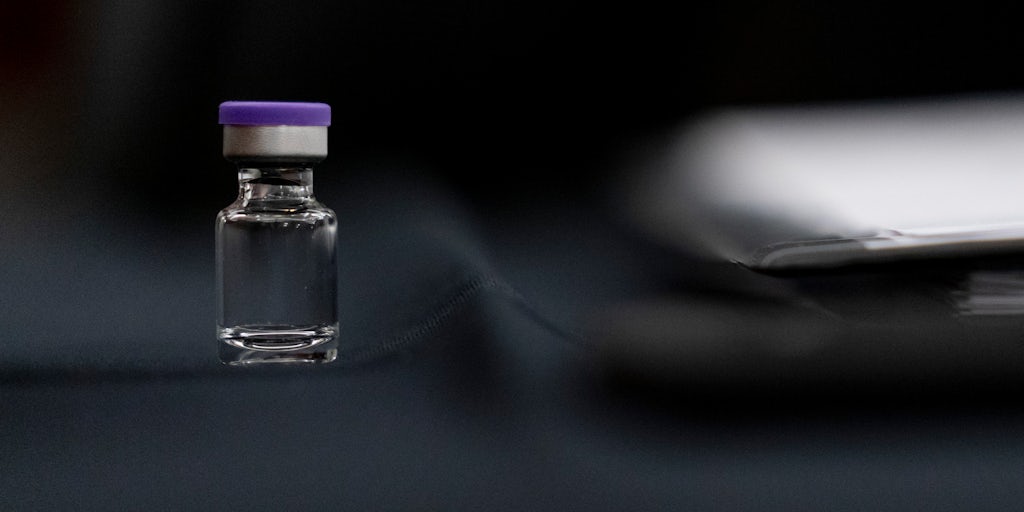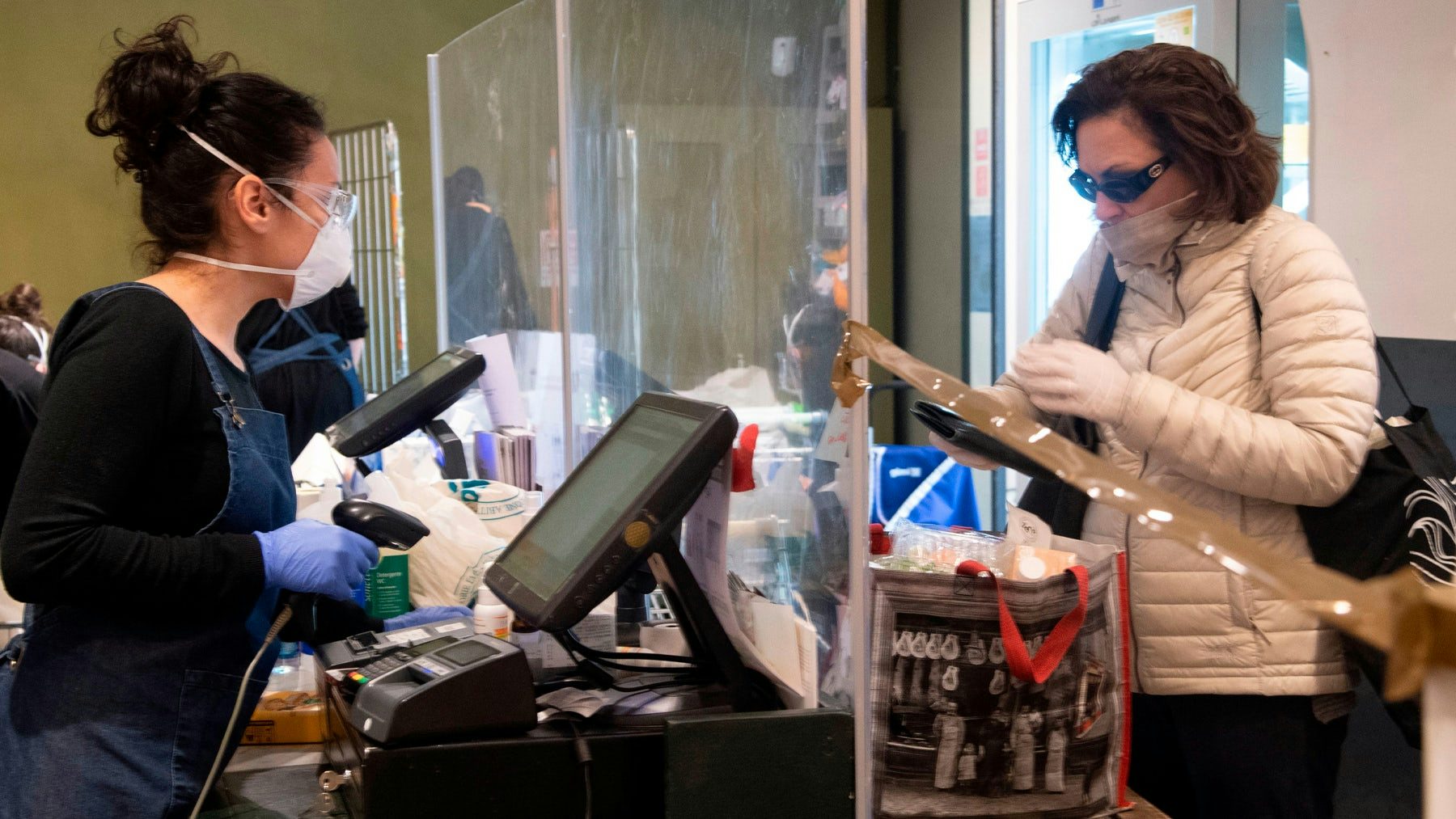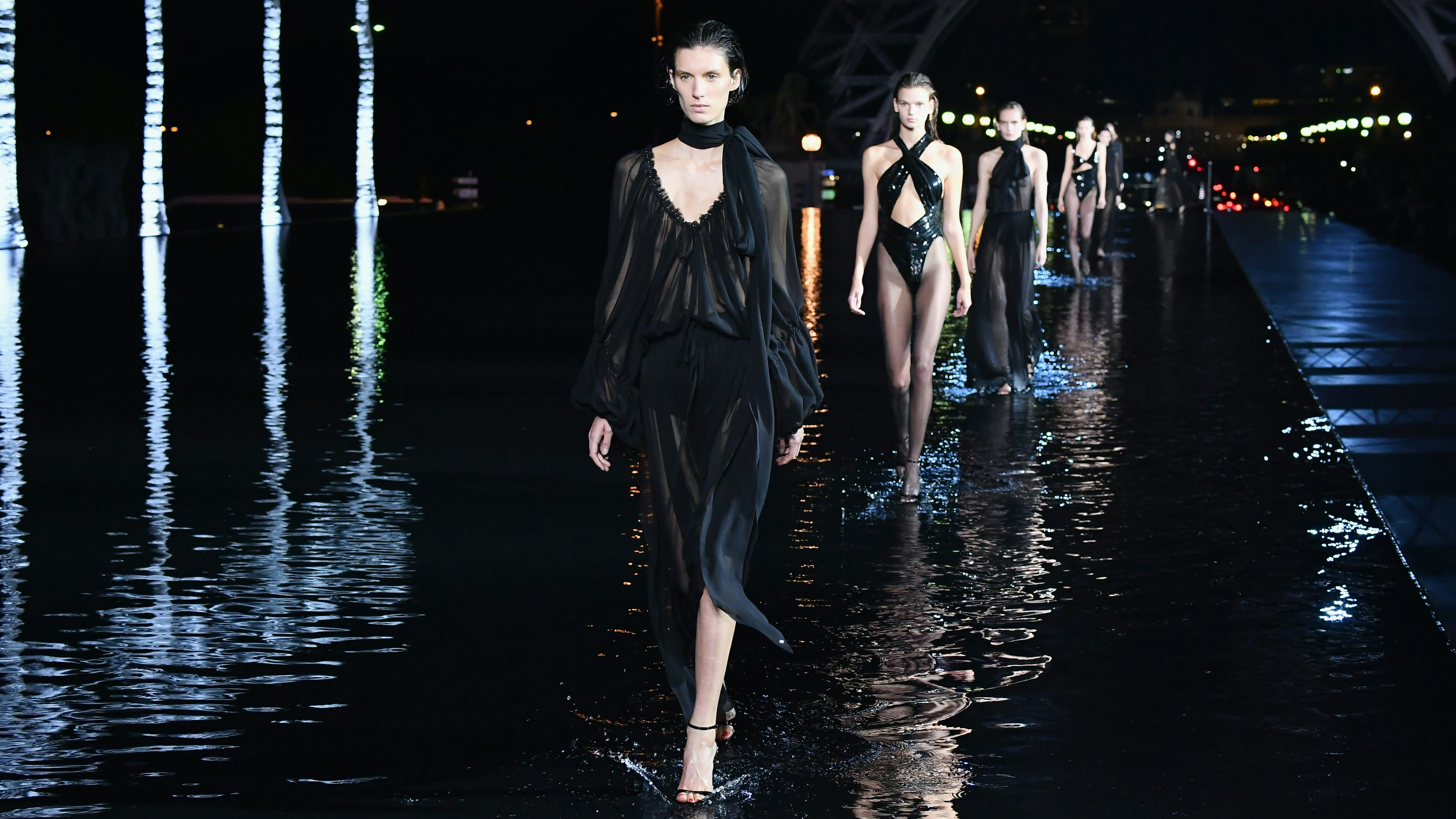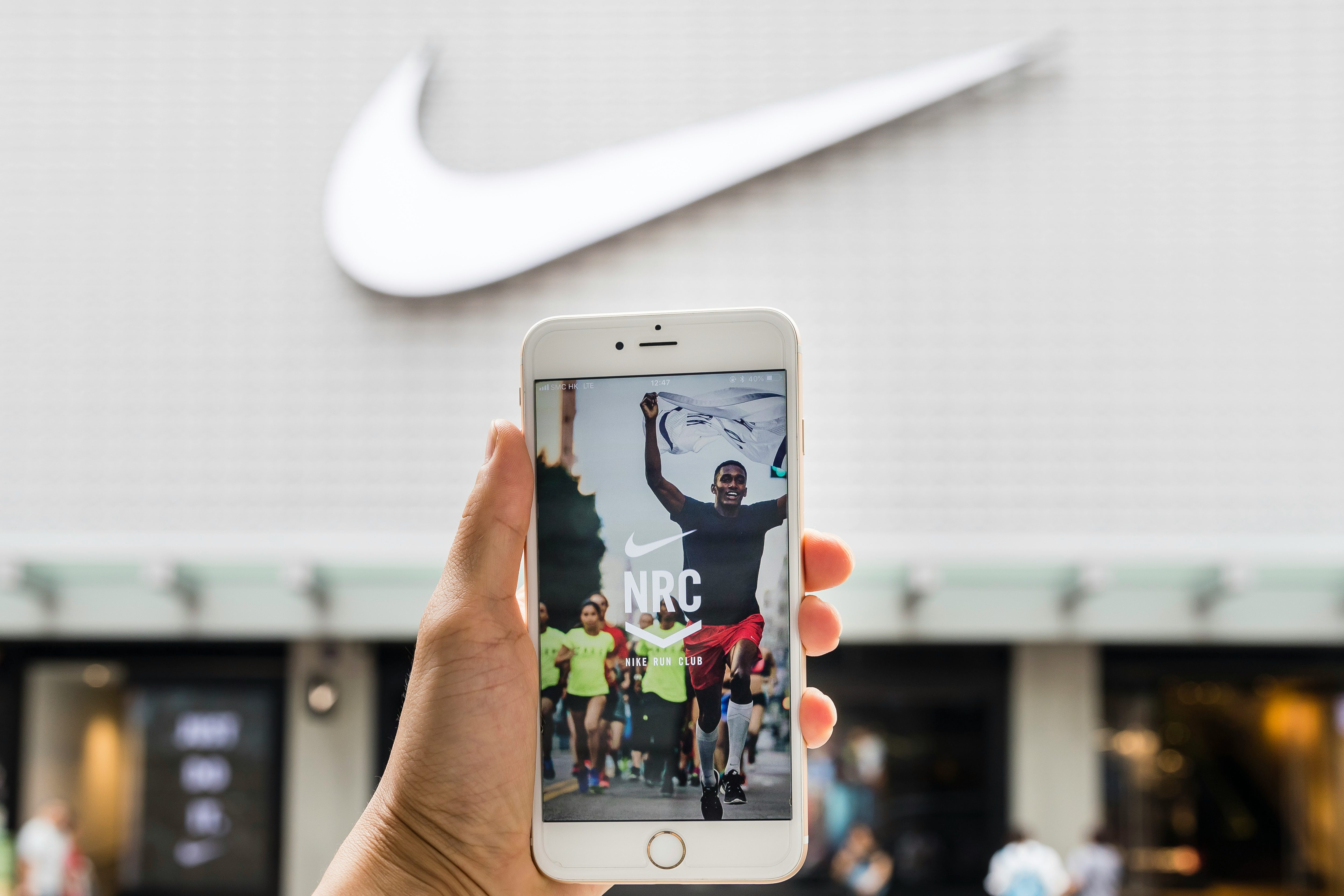The Vaccine Is Finally Here. When Will Fashion See the Benefits? | The Week Ahead, BoF Professional
THE CHEAT SHEET
Fashion’s Long, Slow Recovery Begins
Face masks and plexiglass barriers have become the norm in shops that remain open during the Covid-19 pandemic | Source: Getty Images
-
The UK has begun rolling out a Covid-19 vaccine; the US and EU are likely to follow suit this week
-
Some health experts predict herd immunity will be achieved in some countries as early as mid-2021
-
It may take longer for life – and retail foot traffic – to return to normal, however
The world celebrated when British senior citizens and other vulnerable individuals became the first members of the public to receive the fully tested Covid-19 vaccines last week. While the media is likely to report a steady stream of vaccine approvals, shipments and injection figures this week, the fashion industry still has tough days ahead. Estimates for when enough people will receive the vaccine to achieve herd immunity – allowing for large indoor gatherings and an end to mask mandates – range from the coming spring to late 2021 or even beyond. Some predict once-routine activities, from going to the movies to sampling foundation in a beauty store to attending fashion shows with 600-person audiences, may need years to recover to pre-pandemic levels, if they ever do.
Still, the arrival of the vaccines means that an end to a nightmare year may finally be in sight. Better-than-expected store traffic after the first wave subsided this summer point to a rapid recovery once large numbers of people are vaccinated, though online retailers are likely to hold onto much of their 2020 gains. And though few in the fashion industry are considered frontline workers, and therefore priority recipients of an injection, employees in stores and factories who have been forced to risk exposure every day will no doubt breathe a sigh of relief as the coronavirus is brought under control.
The Bottom Line: The story for fashion next year is shaping up to be one of recovery. Progress is likely to be uneven, as countries will achieve herd immunity at different paces and certain pockets of the industry – particularly travel retail and tourist-dependent brands – will need much longer to rebound.
Saint Laurent Sticks to Its Own Schedule
Saint Laurent | Source: Dominique Charriau/WireImage
-
Saint Laurent will show its Spring/Summer 2021 collection via a video on Dec. 15
-
The brand said in April it would stop showing on the traditional fashion calendar
-
Videos haven’t garnered the same level of engagement as in-person fashion shows
Saint Laurent isn’t staging a “film festival” or releasing a “video game” for its Spring/Summer 2021 collection this week, and maybe that’s ok. The video format may not be revolutionary, but the timing of its release is a break from the norm. The Kering-owned brand was one of the first to break from the fashion calendar when the pandemic struck, saying in April that it would show when it wants, and as often as it wants, in order “to take control of its pace.”
Some other brands have followed suit, most notably fellow Kering-stablemate Gucci, while others, including Louis Vuitton and Chanel, have not. But otherwise, it’s been mainly smaller and independent labels calling for an end to fashion weeks and seasonal collections. Financial pressures are driving this movement. The need to produce numerous collections at a breakneck pace for a declining wholesale market was already becoming untenable before the pandemic. Bigger brands may have less invested in the current system, given that they are prioritising direct sales over wholesale and have the marketing muscle to promote their collections outside fashion week. Even then, while Gucci has indicated it’s left the schedule behind for good, Saint Laurent’s future plans are more ambiguous.
The Bottom Line: The breakaway brands haven’t reinvented the fashion calendar yet, but time is on their side. Even if herd immunity is achieved in time for Paris Fashion Week next September, brands and retailers will have had a full 18 months to work out new ways of debuting and selling designer apparel.
Nike’s Big Year
Nike’s Run Club mobile app. Getty Images.
Nike reports TK-quarter results on Dec. 18
The company’s shares are trading near an all-time high
The US has banned cotton imports from China’s Xinjiang region. Nike says it does not source from there
Nike has had a very good year. As the leading sportswear brand, the company was always going to benefit from the fitness boom that accompanied the pandemic. But, as Chantal Fernandez points out in a case study released last week, a radical, years-long direct-to-consumer pivot paved the way for its success in 2020. At heart, Nike is not a sneaker company; it’s a marketing company that has positioned its products as aspirational in a sea of lookalikes. By the time the pandemic hit, Nike had achieved the scale and brand strength to cut out wholesalers and sell its shoes and apparel directly to customers. The results of this strategy will be on display when Nike reports quarterly earnings this week.
That said, Nike’s marketing machine has papered over some ugly problems behind the scenes. The brand has repeatedly drawn fire for allegedly working with suppliers that used workers from China’s oppressed Uighur minority. Nike said earlier this year that the supplier had stopped using this labour at the end of 2019. It’s also said it doesn’t procure cotton or other inputs from Xinjiang, the Uighur homeland where forced labour is widespread. However, the brand was named by The New York Times as helping lead the lobbying charge against a ban on Xinjiang cotton imports to the US that went into effect earlier this month.
The Bottom Line: Western companies caught using forced Uighur labour haven’t faced much blowback from consumers yet. However, Nike’s high profile and history of ethical issues in its supply chain make it a ripe target for activists, raising the stakes if there are further revelations to come.
SUNDAY READING
Professional Exclusives You May Have Missed:
Chinese influencers to know in 2021.
Alibaba’s Mike Hu on “three-dimensional” retail.
Why protecting fashion’s factory workers is harder than ever.
Kering’s Gregory Boutté on fast-tracking a digital upgrade.
Can Reformation make fast fashion sustainable?
Louis Vuitton’s CEO on navigating the pandemic and the future of luxury.
What fashion and beauty brands need to know about a potential Facebook breakup.
Selfridges’ Anne Pitcher on the sudden pivot to local shopping.
The Week Ahead wants to hear from you! Send tips, suggestions, complaints and compliments to [email protected].
Was this BoF Professional email forwarded to you? Join BoF Professional to get access to the exclusive insight and analysis that keeps you ahead of the competition. Subscribe to BoF Professional here.





